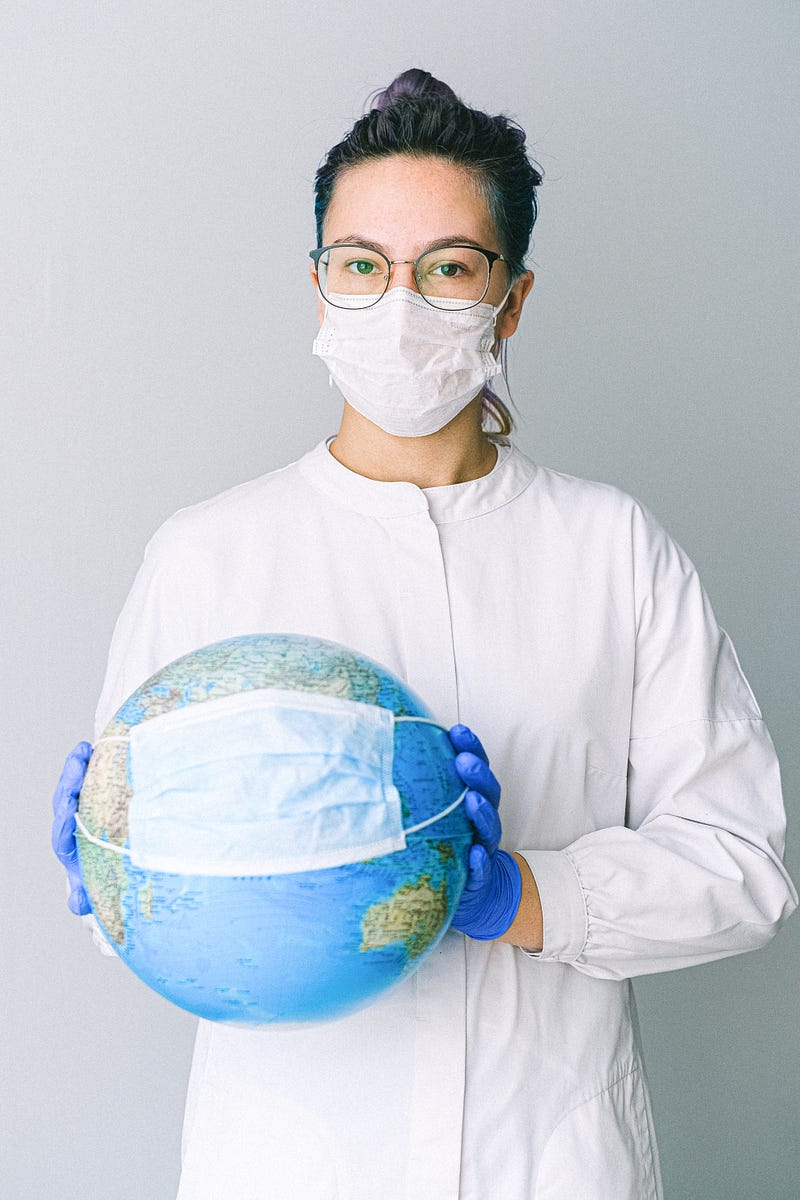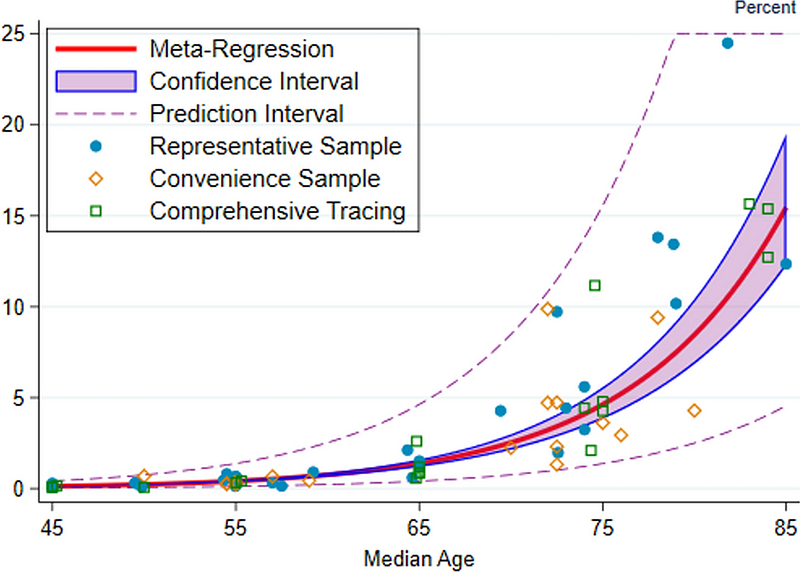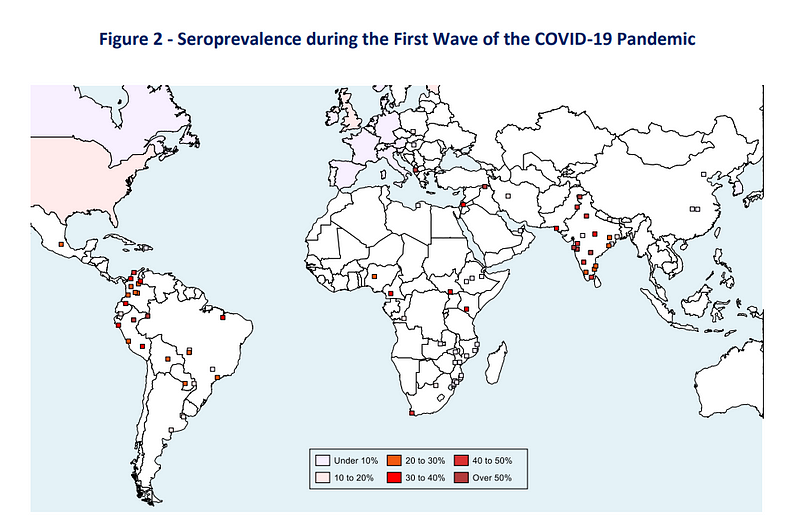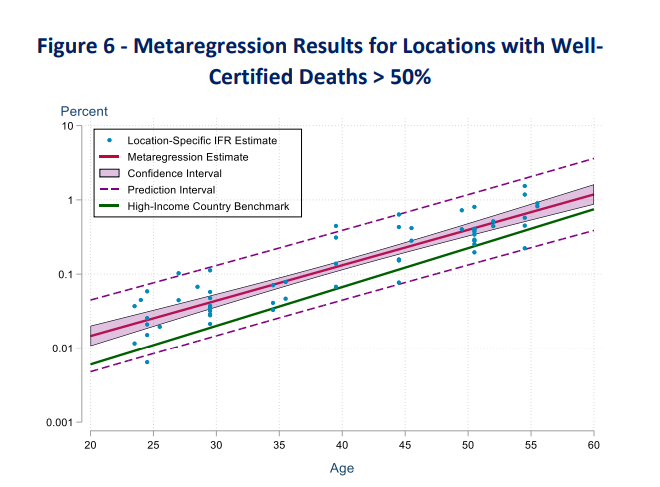# The Alarming Death Rate of Covid-19 in Developing Nations
Written on
Understanding the Covid-19 Death Rate in Low-Income Regions
Throughout the ongoing pandemic, accurately assessing the Covid-19 death rate has proven to be quite challenging. While it seems straightforward to calculate by dividing total deaths by confirmed cases, the reality is complicated by factors such as asymptomatic individuals who never get tested and various discrepancies in tracking the true number of infections.
To address this issue, extensive and meticulous studies have been conducted to evaluate the disease's death rate, utilizing a measure known as the infection-fatality rate (IFR). This statistic estimates the probability of death from Covid-19 upon infection, stratified by age, and the findings have become increasingly reliable.

A Contradiction in Death Rates
Despite the stark realities of the pandemic, data reveal a perplexing trend: some of the poorest regions appear to fare better than expected. For instance, India shows a significantly lower Covid-19 death rate in comparison to the staggering number of infections reported.
In response, we initiated a comprehensive review of the Covid-19 IFR across developing nations globally. Over the last nine months, a team of researchers has collaborated to investigate the pandemic's impact on lower-income populations. The results are, frankly, quite alarming.
The Science Behind the Numbers
Our new study, recently shared as a preprint on medRxiv, expands upon previous work examining Covid-19 risks in wealthier countries. We used antibody prevalence estimates to determine the IFR while also considering the challenges of mortality data collection in developing areas. Given that antibody levels diminish over time, we employed a sophisticated statistical model to adjust for these variations.
We discovered several critical insights. Firstly, low-income countries struggled more significantly to manage the pandemic and safeguard their older populations. These nations experienced higher overall infection rates, particularly among the elderly, than their more affluent counterparts.

This situation is grave, as older adults face a greater risk of death from Covid-19. Consequently, the increased infection rates in these regions result in elevated overall mortality rates. Disturbingly, some South American countries have reported that one in every 200 individuals has succumbed to the disease since the pandemic's onset.
When examining the IFR, our analysis of thousands of studies yielded a stark conclusion: the Covid-19 death rate in developing nations can be up to three times higher than that in high-income countries, depending on age group.

The Impact of Healthcare Disparities
Collectively, these factors create a dire situation in developing regions: higher infection rates, especially among the elderly, coupled with increased death rates once infected. Our research underscores the devastating effects of the pandemic in areas where healthcare resources are limited and highlights the stark inequities in global health.
As for regions reporting low Covid-19 death rates, like India, the situation is often attributed to poor mortality recording practices. Research shows that in some low-income countries, such as Zambia, nearly 90% of Covid-19 deaths may go unrecorded. This discrepancy is shocking, especially when comparing places with reliable death reporting systems to those lacking them; the death rate can be tenfold higher in poorly reporting regions.

The Role of Vaccine Equity
While the situation appears grim, there are actionable steps we can take. A primary focus should be on urgently providing vaccine doses to low-income countries that have faced the brunt of the pandemic. While addressing global policy issues may seem daunting, individual contributions to organizations like COVAX can play a significant role in vaccine distribution.
COVAX Facility
Gavi co-leads COVAX, which aims to ensure equitable access to Covid-19 vaccines worldwide.
www.gavi.org
Addressing Global Health Inequity
The broader issues of global health equity, however, remain challenging. Though we can quantitatively demonstrate how much worse off individuals in low-income areas are regarding Covid-19 risks, achieving meaningful change requires concerted global action to provide resources to the hardest-hit regions—an endeavor that often lacks governmental interest.
It is crucial that those able to contribute financially towards vaccine equity do so, and advocating for greater attention to global health issues among local politicians can yield tangible results.
In conclusion, the pandemic's impact has been incredibly disproportionate across the globe, with vulnerable areas suffering the most. To address this pressing issue, we must all commit to enhancing global health efforts without delay. Another pandemic is on the horizon, and proactive measures are essential to prevent a recurrence.
The first video titled "Why the COVID death rate in the U.S. is so much higher than other wealthy nations" explores the factors contributing to the elevated death rates in the United States compared to other affluent countries.
The second video, "Covid-19: how many people have died?" provides a detailed overview of the global death toll attributed to the pandemic.